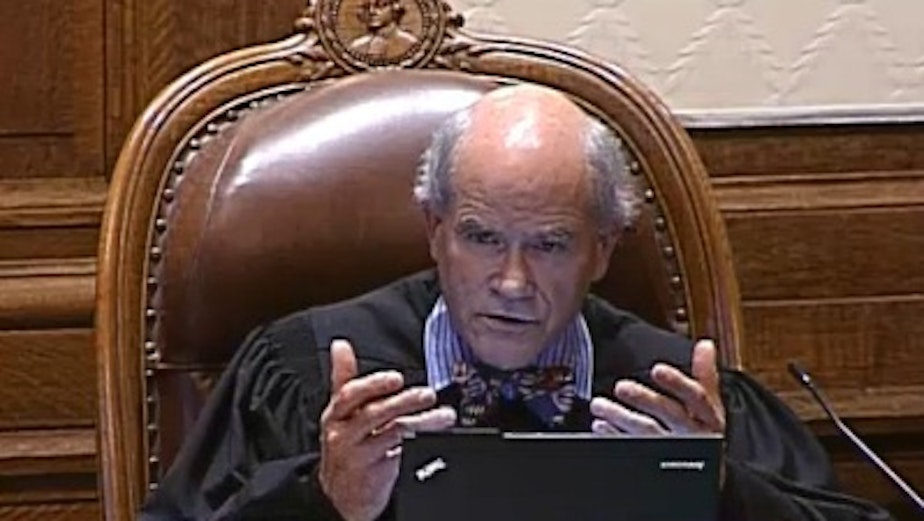State Supreme Court Sends Death Penalty Case Back To King County Court

A unanimous opinion from the Washington Supreme Court has ruled that a death penalty case in the so-called Christmas Eve murders can proceed. The ruling finds that King County prosecutors handled the case correctly.
The case is against Joseph McEnroe and Michele Anderson. They’re accused of killing six people in Anderson’s family in Carnation on Christmas Eve 2007.
Prosecutors sought the death penalty. But last January, King County Superior Court Judge Jeffrey Ramsdell threw out that option. He said prosecutors mistakenly weighed the strength of the evidence against the two in making their decision.
That could violate the defendants’ right to equal protection, he said, because defendants could be more likely to face the death penalty in counties with bigger budgets for prosecutors. King County prosecutors appealed Judge Ramsdell’s decision, saying they had the discretion to seek the death penalty. Last May the case was heard by the Washington Supreme Court.
Justice Charles Wiggins pursued Ramsdell’s concern during oral arguments, asking whether a defendant would be “unfortunate” to commit a crime in a better-funded county that could bring forward stronger evidence. But in writing for the court, Wiggins said considering the evidence is actually a positive sign. It shows that prosecutors did a “holistic, individualized” assessment of the case before seeking the death penalty.
Sponsored
King County Prosecutor Dan Satterberg issued a statement saying he’s pleased that the cases can go to trial with all the sentencing options available. Pierce County Prosecutor Mark Lindquist called the ruling significant, but not surprising.
“All they are saying is that they want prosecutors to consider the big picture when making the weighty decision of whether or not to see the death penalty,” Lindquist said. “And the big picture necessarily includes the strength of the evidence.”
When Can Prosecutors Seek The Death Penalty In Washington?
State law says when seeking the death penalty, prosecutors must first determine whether the defendant deserves leniency for any reason. These “mitigating factors” can include the defendant’s age, hardships, criminal record, and whether they were pressured to act by someone else. They are used to determine the defendant’s “moral culpability.”
The state supreme court found that prosecutors used mitigating factors correctly in this case.
Sponsored
Lindquist said even when prosecutors are looking at those factors in deciding whether to pursue the death penalty, the strength of the evidence is always part of their decision making. “We do go around the table and discuss the mitigating factors, but invariably the strength of the case comes up, and whether it’s directly vocalized or just implied in some of the arguments, it is always a factor,” he said.
In striking the notice to seek the death penalty, Judge Ramsdell said he feared that if prosecutors weighed the evidence, “a defendant’s early confession and cooperation could become his downfall.” Prosecutors say both Anderson and McEnroe confessed to the killings.
But the state Supreme Court’s decision countered that King County prosecutors were doing their jobs. The court said, “in many respects it makes good sense for prosecutors to reflect on the strength of their cases before deciding to seek the ultimate punishment.”
Prosecutors expect the trials for Anderson and McEnroe to begin this fall. They're also awaiting a decision from the state Supreme Court on whether the death penalty case against Christopher Monfort can proceed.

